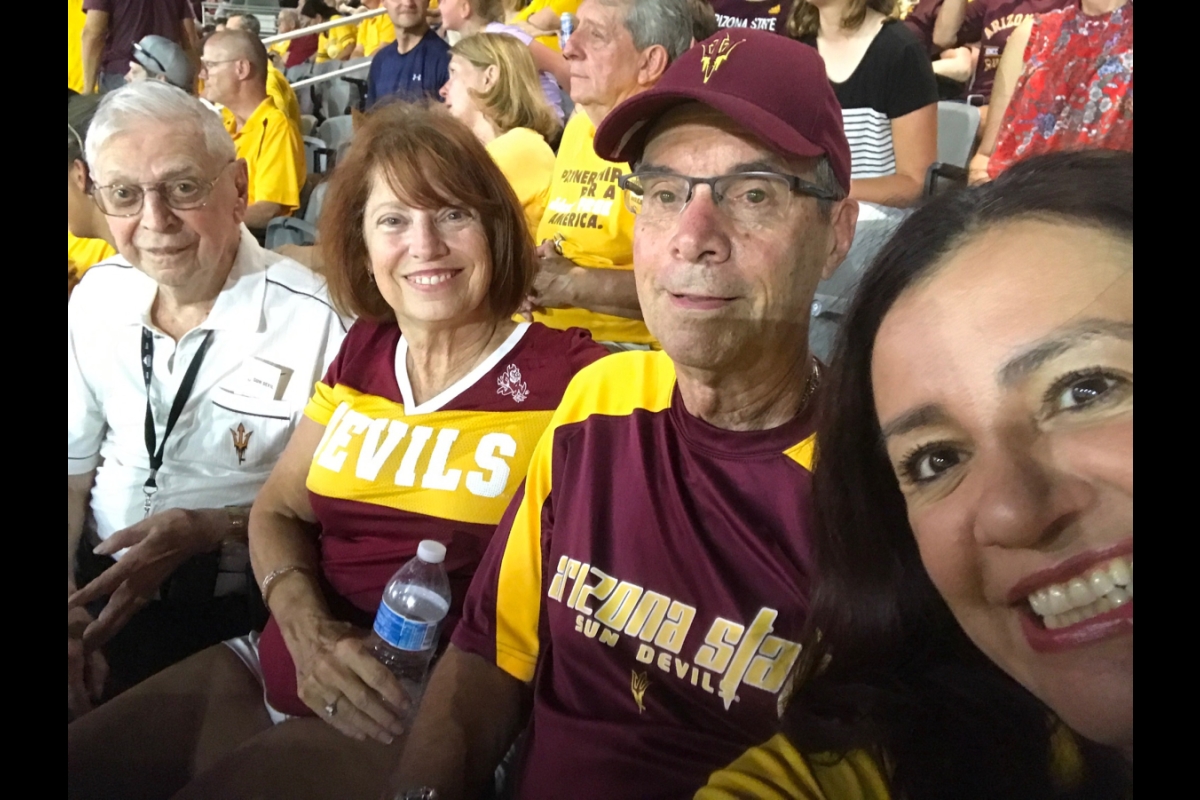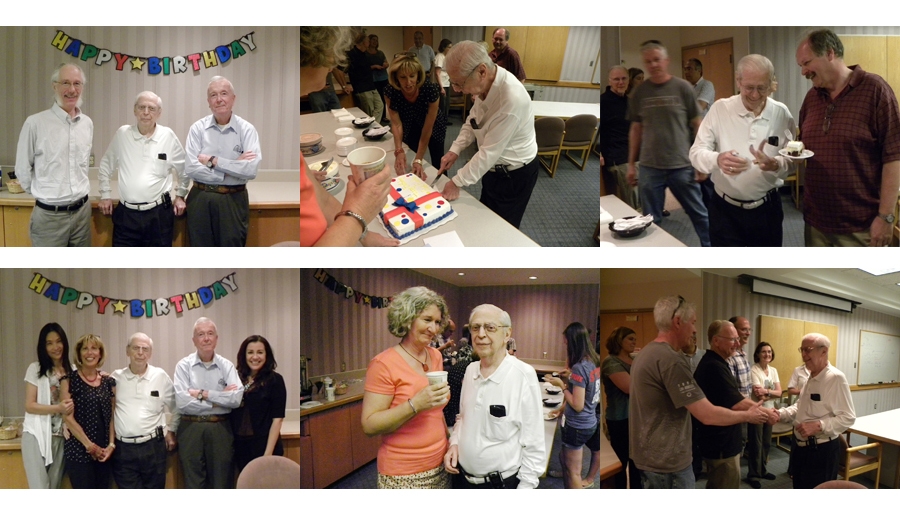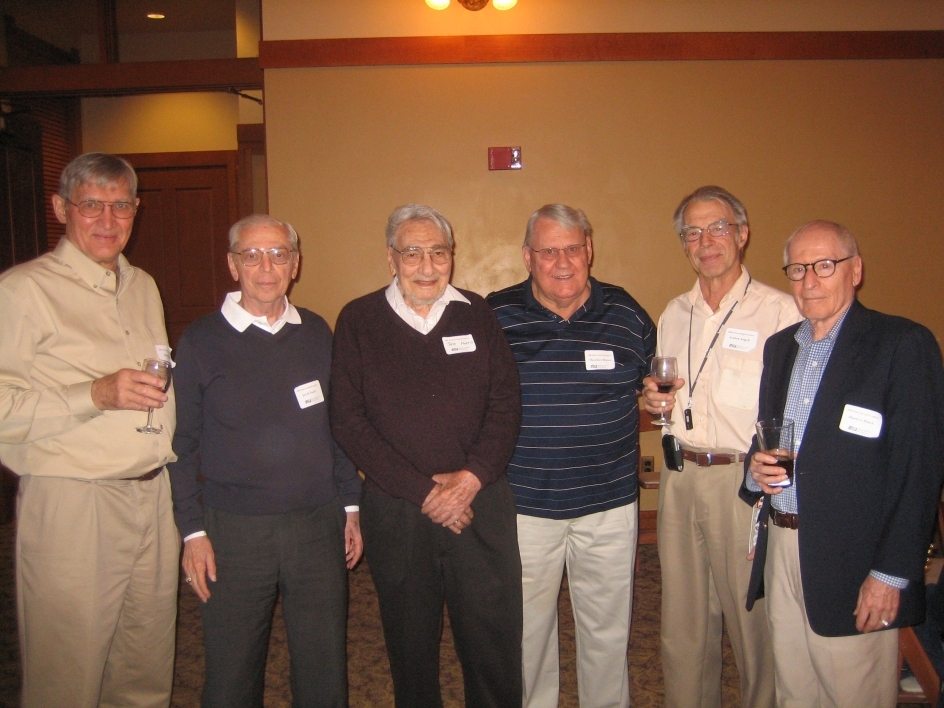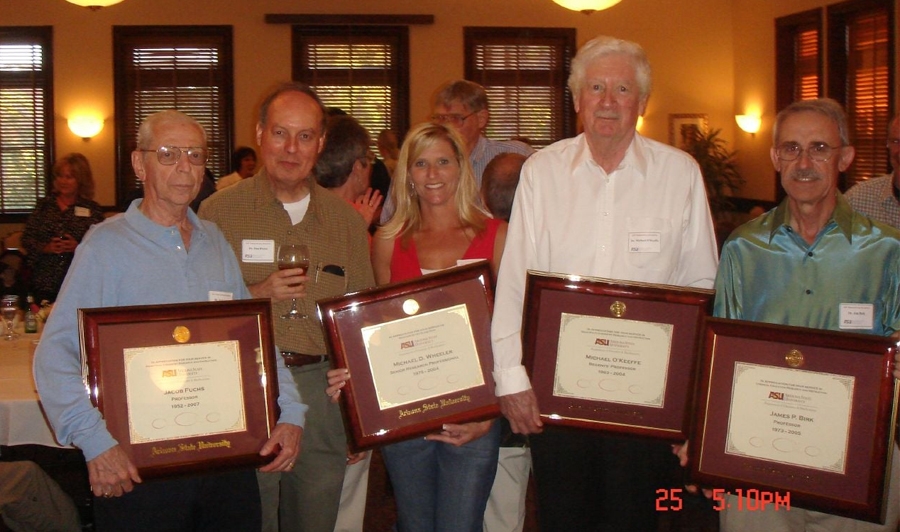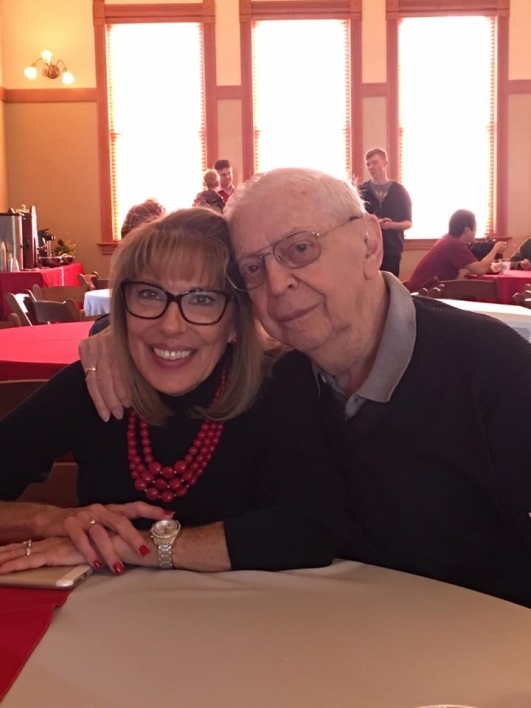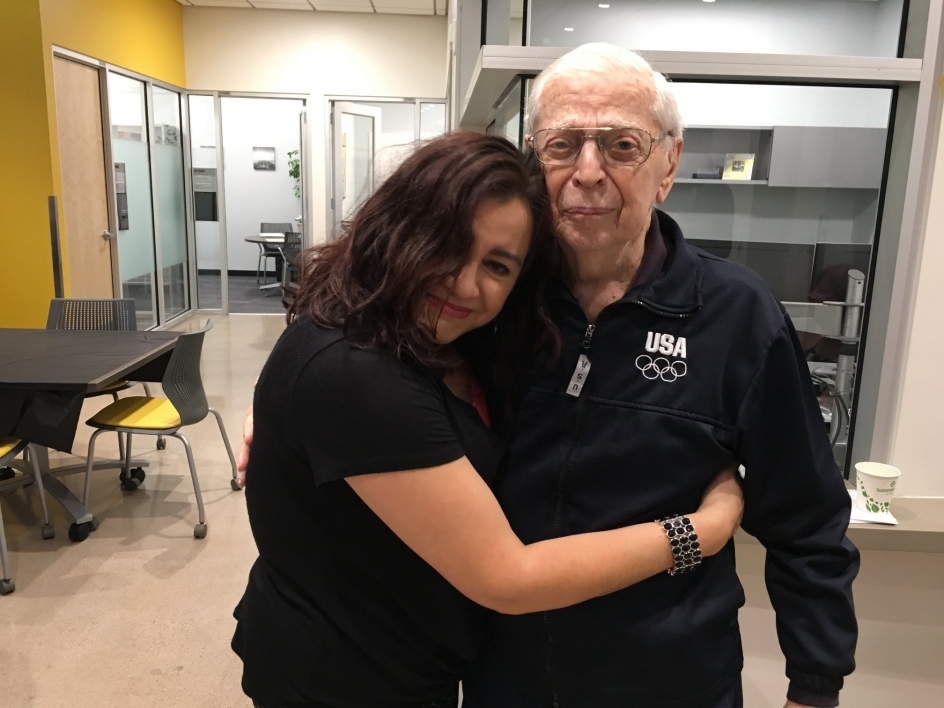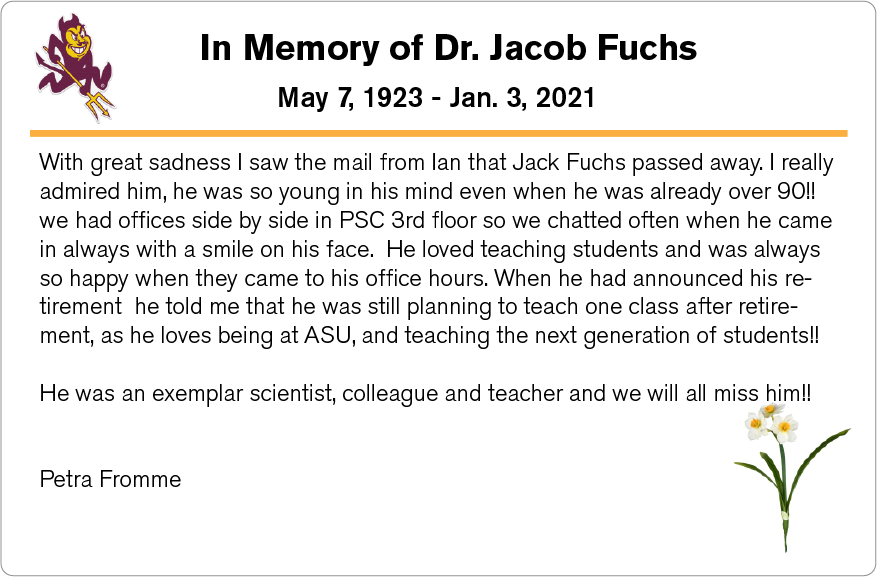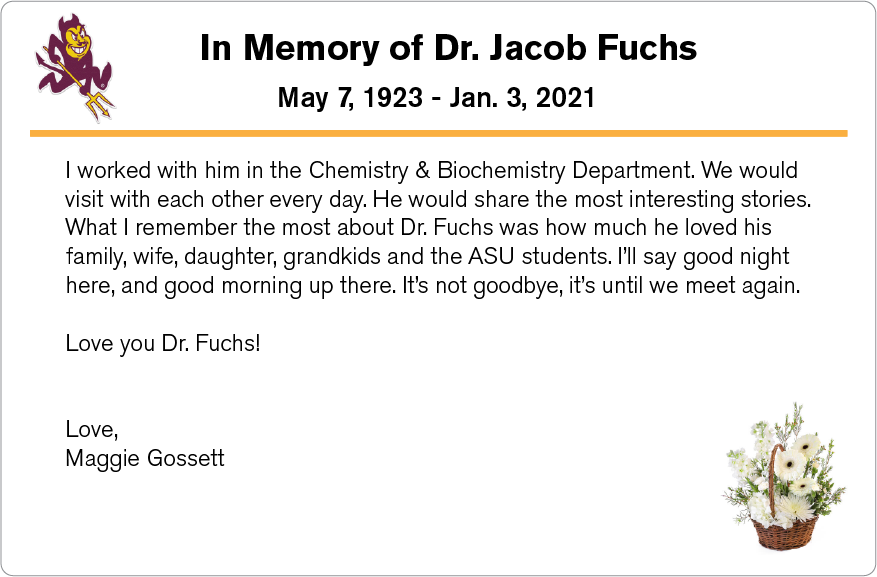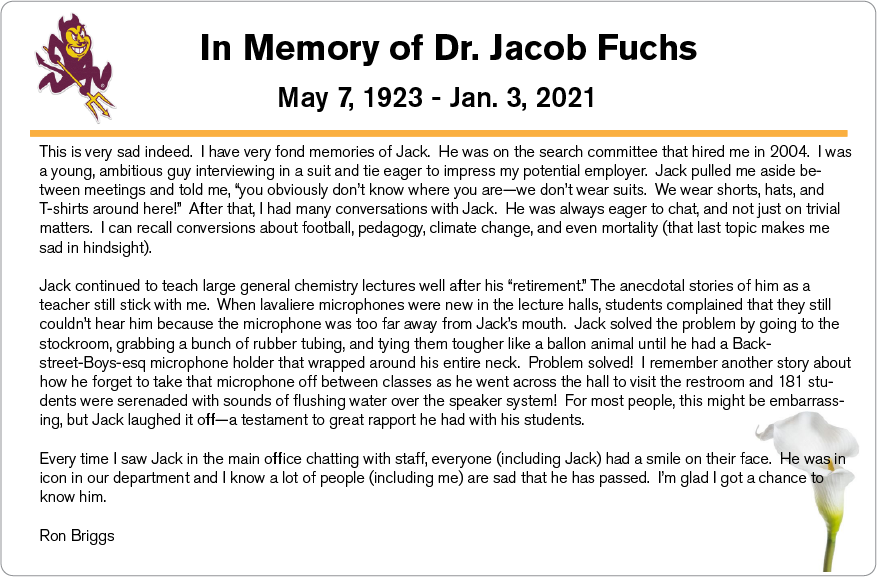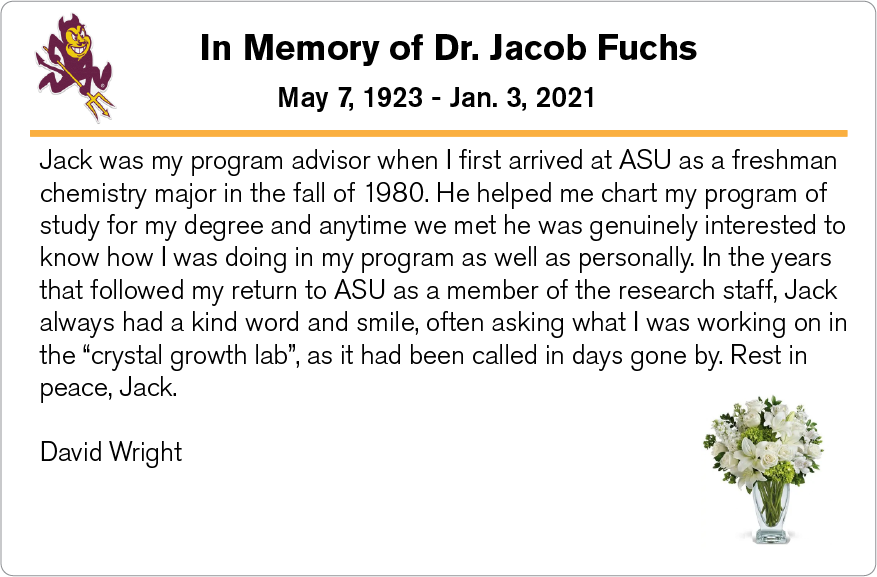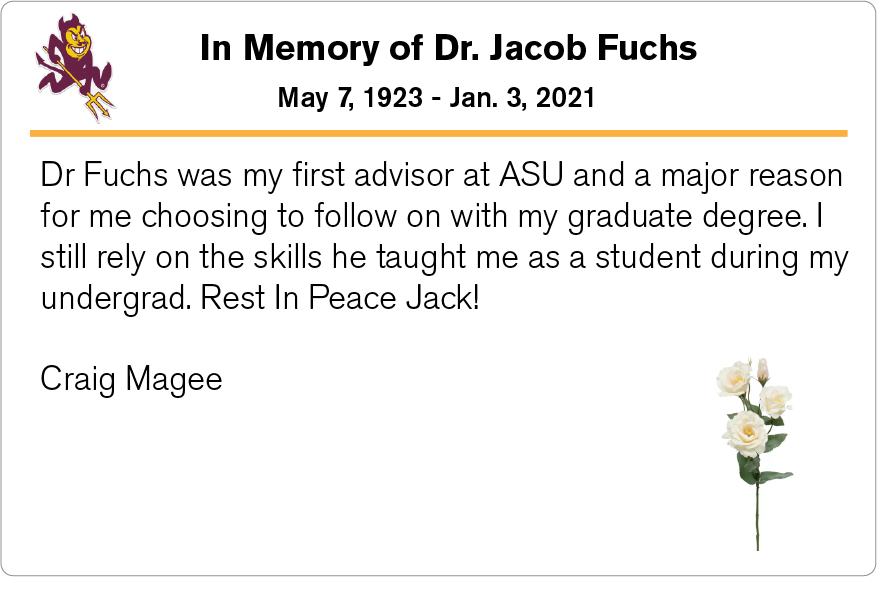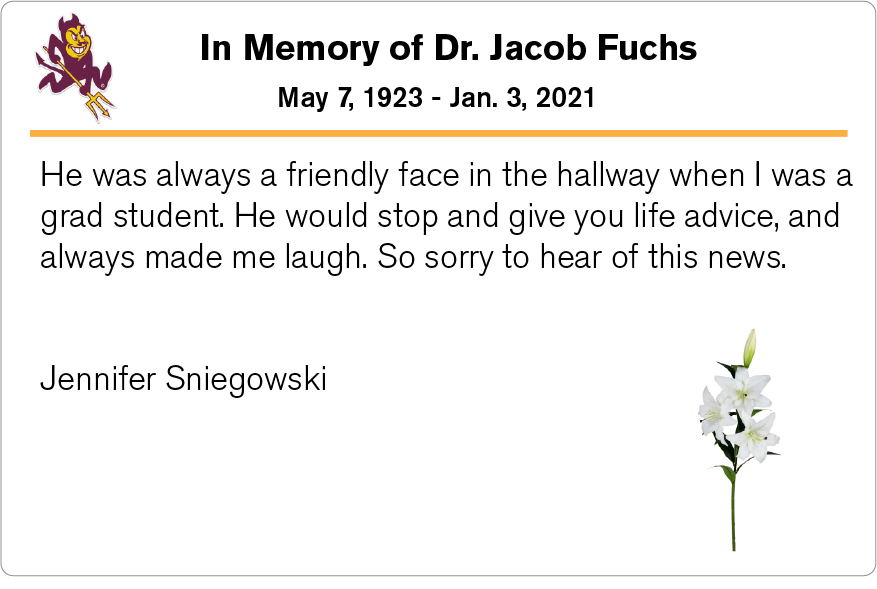Jacob 'Jack' Fuchs, ASU chemistry professor for 55 years, dies
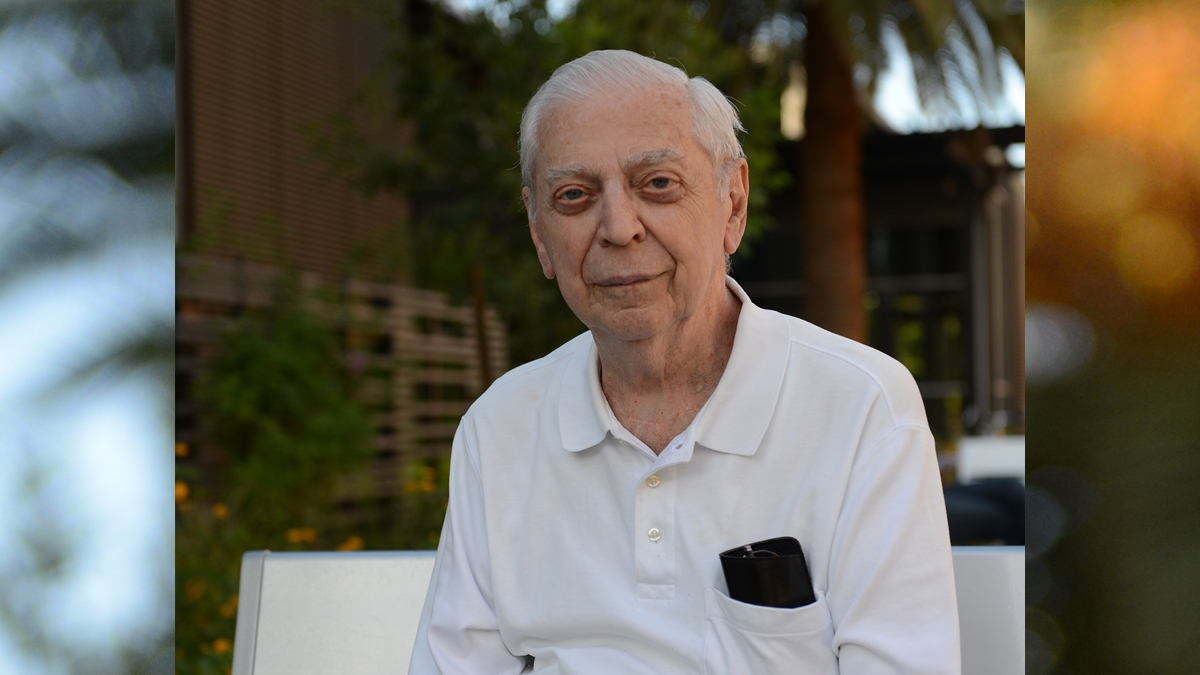
Jacob "Jack" Fuchs. Photo credit: Mary Zhu
Jacob “Jack” Fuchs, who began his teaching career when Arizona State University was still Arizona State Teachers College in 1952, died Jan. 3 at the age of 97. Fuchs’ career at ASU included roles as a chemistry professor, professional timpanist and sportsman.
“Jack was a phenomenon, he was the longest serving faculty member at ASU, joining the faculty before ASU was a university in its present form,” said Ian Gould, director of ASU’s School of Molecular Sciences. “Even after he retired Jack was still a regular visitor to the school, keeping in close contact with school activities, consulting with the advising team to help with transfer credits and striding through the corridors with a smile and a sprightliness that belied his age. He was a much-loved member of our community.”
Fuchs was born on May 7, 1923, in New York City to Sandor and Irma Fuchs. He knew at a very young age what he wanted to be when he grew up.
“When I was 7 or 8, I said I was going to be a chemist,” Fuchs previously said. “I had chemistry sets, but they didn’t have what I wanted, so my father took me to Eimer & Amend, a chemical supply store in New York.” Once the clerk at Eimer & Amend was satisfied that this young boy knew how to handle the more advanced chemicals, the sale was made.
In June 1944, Fuchs was awarded a BA in chemistry from the Heights Campus of New York University and by that time he had already spent three months in basic training in the army at Camp Croft, South Carolina. After serving in Europe as a combat infantryman with the 79th Infantry Division, he was discharged on Halloween in 1945. A blind date on New Year’s Eve in 1946 brought Rose Lochansky into his life and they were married six months later. Then it was off to the University of Illinois-Urbana-Champaign for graduate study. Fuchs received a MS in chemistry in 1947 and a PhD in analytical chemistry in 1950, followed by an additional 18 months of postdoctoral training.
Fuchs had planned to be a bench chemist, but his life was changed forever after he taught his first class as a graduate assistant at the University of Illinois-Urbana-Champaign.
“Even after only one semester, I decided teaching was for me,” he said.
Teaching jobs were scarce, so when word came to Illinois that there might be a job in Arizona, Fuchs’ colleagues suggested that he look into it.
“Dr. Bateman offered me the job sight unseen, and I took it, sight unseen,” Fuchs said.
“Jack was a devoted mentor of the younger faculty," said Michael O’Keeffe, ASU emeritus Regents Professor. “I arrived in 1963 thrown into teaching freshman chemistry, completely ignorant of American education and esoterica like grades, quizzes, teaching assistants, etc. Jack spent countless hours coaching me.”
“Jack was an early pioneer in establishing a meaningful graduate program in chemistry at ASU. After approval of the doctoral program, Jack continued as its guiding force,” said Emeritus Professor Morton Munk. “He received his PhD from the University of Illinois and knew what was required to build a solid graduate program. He understood the importance of mentoring and nurturing graduate students and devoted himself to the task. Jack established a nationally recognized summer program in Instrumental Analysis for industrial chemists that ran for many years. Jack was also a well-rounded citizen in the community. He was a serious musician and the timpanist of the Phoenix Symphony."
He was principal timpanist with the Phoenix Symphony from 1952 to 1979, with guest artists such as Dame Margot Fonteyn, Jack Benny, Pablo Casals and Andres Segovia, then played with the Sun Cities Symphony Orchestra from 1983 to 2002.
“Music was as much a part of my life as chemistry,” Fuchs said.
Fuchs was also a tough-to-beat tennis player.
“There was a time when ASU had a faculty tennis team,” Fuchs said. “There was a civic league, and we’d play a match every weekend.”
Fuchs also played with the legendary ASU coaches Frank Kush, Bobby Winkles and Ned Wulk, and together they were a formidable foursome.
Kush said of Fuchs: “He was really active and involved with programs at ASU. He was one of those individuals who always cared about his students and made sure they were going to be successful.”
And, “his tennis game was as good as his intellect,” added Kush, who lost to Fuchs more than once on the court.
“Jack was executive officer, i.e., assistant chair, for LeRoy Eyring when I joined the faculty, a position he held for many years," said Regents Professor Peter Buseck of the School of Molecular Sciences and the School of Earth and Space Exploration. "He was unerringly kind and helpful at a time in my career when I felt relatively insecure.
“This was especially true because I thought I had been hired into the geology department rather than also being an assistant professor of chemistry. Jack’s door was always open, and he was generous with his advice whenever asked. His spectroscopy course attracted people from many institutions and helped give our department good visibility.”
Fuchs is survived by his daughter, Tara Roesler, as well as his grandson, Alexander, and granddaughter, Kimberly; his daughter-in-law, Debra, and grandchildren Jennifer Masse and Robert Tischler; and great grandchildren Jaeden, Zoe, Blake and Ryker. Fuchs was preceded in death by his wife and his son, Gary.
More Science and technology
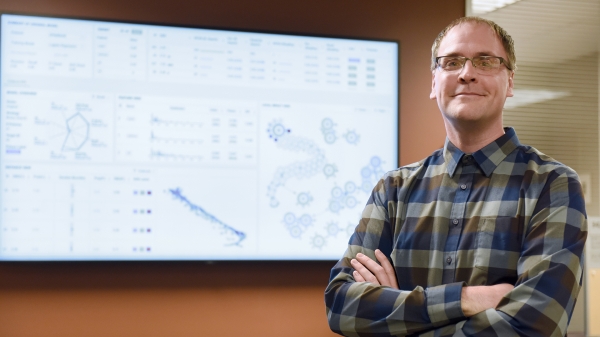
ASU computing school director honored with prestigious award
Today, in an increasingly complex world, lawmakers and leaders must make big decisions, and they must often do so very quickly.…

Discovering new materials using AI and machine learning
The United States, in recent years, has been struggling with a supply shortage of critical materials needed for advanced…
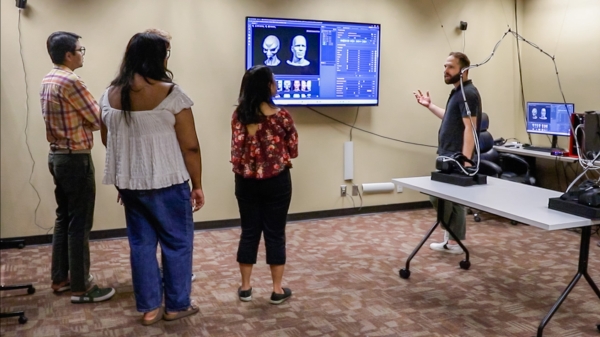
ASU researchers experiment with breakthrough tech exploring human communication, perception
Digital manipulation of video images, whether for blockbuster films or malicious intent, also known as deepfakes, has become…
